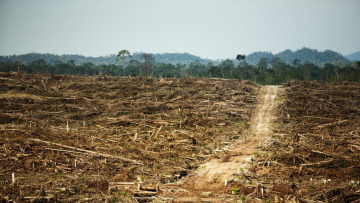Paper group listing is forest unfriendly
We’re hoping it’s not bad news for China’s forests, but the Ministry of Environmental Protection (MEP) posted a worrying statement today on paper giant APP’s Chinese subsidiary, Gold East Paper.
Gold East Paper wants to list on the Shanghai Stock Exchange and it’s the MEP’s job to say yes or no.
Days after they submitted their application last August, Greenpeace and several environmental groups including Global Village, Friends of Nature, Green SOS and Green Watershed, compiled a list of environmental concerns about Gold East Paper and sent it to the MEP.
We asked the MEP to carefully consider Gold East Paper’s application in light of the fact that it and its seven subsidiaries in China are connected with a number of serious environmental offences – a lot of them associated with pollution from pulping plants and also illegal logging in Yunnan and Hainan provinces.
The MEP generally takes a month or so at most to consider a listing request. It’s well over six months since Gold East Paper put in its application. This is encouraging since it appears the MEP is taking the environmental accusations seriously.
However the MEP published a statement on their website today that says after careful investigation by local environmental bureaux, they feel that Gold East Paper has addressed these environmental concerns. In fact, it says, Gold East Paper has invested more than 100 million yuan over the past two years to clean up its act.
However, when it comes to the environment, just pumping money into projects is not the only answer. We want to see real evidence that Gold East Paper is not going to harm China’s forests and illegally pollute its water.
Just last October a Greenpeace investigation in Hainan found that villagers there were complaining of severely polluted well water which they blamed on a pulping factory owned by one of Gold East Paper’s subsidiaries.
We are also concerned that Gold East Paper has not yet come up with a satisfactory answer to securing a sustainable supply of wood.
By listing on the stock exchange, Gold East Paper aims to use the money raised into expanding its China operations. And as far as we understand, this can’t be done sustainably with local wood sources.
How can we let a company tainted by pollution and illegal logging scandals expand further in China?

